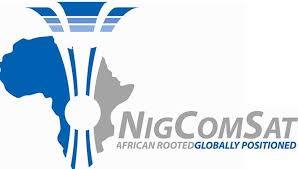Agency for Air Navigation Safety in Africa and Madagascar ASCENA have commenced a Satellite-Based Augmentation System (SBAS) broadcast signal over Africa and the Indian Ocean (AFI) region.
This is contained in a statement by NIGCOMSAT General Manager, Corporate Affairs, Mr Adamu Idris in Abuja on Thursday.
According to him, the aim is to provide the first SBAS open service in this part of the world on NigComSat-1R satellite, a communications satellite managed and operated by NIGCOMSAT Ltd under the Federal Ministry of Communications and Digital Economy of Nigeria.
He said the open service was provided as part of the ‘SBAS for Africa and Indian Ocean’ programme which pursue the autonomous provision over the continent of SBAS services to augment the performances of the satellite navigation constellations GPS and Galileo.
NIGCOMSAT Managing Director/CEO, Dr Abimbola Alale expressed delight over the development.
“We are proud to be part of this ambitious programme to provide satellite navigation services in the African and Indian Ocean region. The use of our geostationary communication satellite, NigComSat-1R navigation payload to broadcast the first signal will be Africa’s premier communications satellite contribution to SBAS as a regional satellite-based augmentation system for the continent”.
NIGCOMSAT SBAS Project Manager, Dr Lasisi Lawal, said the services will help improve GPS accuracy to within a meter and boost integrity, availability and continuity of safety-related applications.
” The SBAS services will improve flight safety and efficiency in Africa, as well as support safety and commercial applications related to land, sea and rail transportation which are beneficial to the economy. It will follow the policy direction of the Minister of Communications and Digital Economy, Dr Isa Pantami in digitalising the Nigerian economy”.
Lawal said the services was expected to grow the GDP and value propensity not only in the communications sector but aviation, maritime, rail transport, precision agriculture, survey, oil and gas,
He said it would boost security of strategic national infrastructure and mass market applications for sustainable development beyond Nigerian shores.
Lawal said the open service essentially aimed at carrying out technical trials as well as partnering with airlines, field demonstrations for aircraft and rotorcraft, to demonstrate the benefits of the future operational safety-of-life SBAS services expected from 2024.
“It is expected to include Precise Point Positioning (PPP) and emergency warning service to populations, which performance will be proven through demonstrations. The signal-in-space is generated by a dedicated system tested, developed as part of the SBAS for Africa and Indian Ocean preliminary design phase, which is financed by the EU and awarded to Thales Alenia space, a joint venture between Thales 67 per cent and Leonardo 33 per cent. The SBAS for Africa and Indian Ocean is based on the European EGNOS developed by the European Space Agency (ESA) acting under delegation of the European Commission and operated by the European GNSS agency GSA“.
Lawal said the system prototype use reference stations network, the SAGAIE network deployed by CNES and ASCENA with the support of Thale Alenia space.
He said the signal was broadcasted via the SBAS payload on NigComSat-1R geo satellite of NIGCOMSAT Ltd and uplink station deployed in Abuja (Nigeria).
” It is compliant to the standards and recommended practices of the International Civil Aviation Organisation and the Minimum Operational Performance Standard developed by the Radio Technical Commission for Aeronautics (RTCA) organisation. It will be visible in the whole of Africa and the Indian Ocean up to the West Australian coast and also in Europe”.

